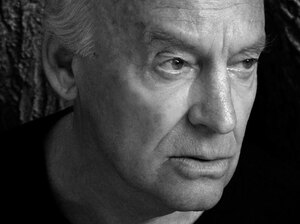An intriguing short interview with the Uruguayan author Eduardo Galeano as he contemplates the various histories of the worlds over the past 5,000 years.
I found the context of this radio interview intriguing for a number of reasons. The setting of a cafe as a place to think and plot and plan future worlds — of course this is resonant to me. The right cafes are peerless as places to think, observe, meet people, write, sketch, ponder. Much, much better than just about any of the social settings available in digital environments. I mean, really — Facebook is an obscure diacritic in the language of human social practices as far as my experience suggests.
But perhaps what resonated were its closing remarks describing briefly how Galeano does not drive, rarely uses a cellphone, etc. All of the things you might expect from a poet-author-dissident. This remark in particular has stuck with me for a couple of days:
When it’s time to leave the cafe, a friend appears outside to give him a lift. Galeano doesn’t drive, nor does he use his cell phone much. He suspects his computer — and all computers — drink whiskey at night when nobody’s watching.
“And that’s why next day they do some enigmatic things that nobody can understand,” he says.
I like this imagery, of devices that do things while we sleep. Nothing too crazy, just slightly disruptive. Like the concept for the “Sleeping Brawler” Nicolas and I poked around awhile ago. Your online personas/avatars who sleep walk around the network when you are asleep, doing generally harmless but annoying things, like sending weird messages, poking at people, etc.
Once exiled for 12 years, the Uruguayan author now spends his days at his hometown cafe, writing about themes that have preoccupied him for a lifetime. His latest book, Mirrors
, is an unofficial — and unconventional — history of the past 5,000 years.
(Via NPR Blog.)

